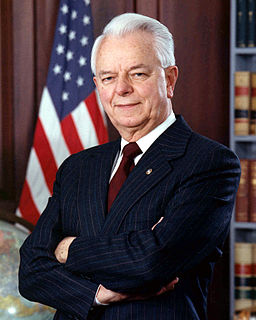A Quote by Bashar al-Assad
At the end, I said [chemical weapons] is something not to be discussed with anyone.
Related Quotes
This would be a very good moment to institute a call for imposing the Chemical Weapons Convention on the Middle East. The actual Chemical Weapons Convention. Not the version that [Barack] Obama presented in his address to the nation and that media commentators repeat. What he said is that the convention bars the use of chemical weapons. He knows better. And so do the commentators. The Chemical Weapons Convention calls for banning the production, storage and use of chemical weapons, not just the use. So why omit production and storage?
Israel produces and stores chemical weapons. So therefore the US will prevent the Chemical Weapons Convention from being imposed on the Middle East. But it's necessary to evade this by misrepresenting the convention, and I think maybe 100 percent of the media, or close to it, go along. But that's a critical issue. Actually, Syria's chemical weapons were developed largely as a deterrent to Israeli nuclear weapons. Also, not mentioned.
And, as a consequence of the pressure that we've applied over the last couple of weeks, we have Syria -- for the first time -- acknowledging that it has chemical weapons, agreeing to join the convention that prohibits the use of chemical weapons, and the Russians -- their primary sponsors -- saying that they will push Syria to get all of their chemical weapons out. The distance that we've traveled over these couple of weeks is remarkable.
At another location, we found barrels of chemical material that was intended for use as biochemical weapons. Everyone talks about there being no weapons of mass destruction in Iraq, but they seem to be referring to completed nuclear bombs, not the many deadly chemical weapons or precursors that Saddam had stockpiled.
The last UN weapons inspectors left Iraq in October of 1998. We are confident that Saddam Hussein retains some stockpiles of chemical and biological weapons, and that he has since embarked on a crash course to build up his chemical and biological warfare capabilities. Intelligence reports indicate that he is seeking nuclear weapons.
It [the intelligence service] concludes that Iraq has chemical and biological weapons, that Saddam has continued to produce them, that he has existing and active military plans for the use of chemical and biological weapons, which could be activated within 45 minutes, including against his own Shia population; and that he is actively trying to acquire nuclear weapons capability.
Our soldiers in another area were attacked chemically. Our soldiers - they went to the hospital as casualties because of chemical weapons, but in the area where they said the government used chemical weapons, we only had video and we only have pictures and allegations. We're not there ; our forces, our police, our institutions don't exist there. How can you talk about what happened if you don't have evidence ?
My goal is to maintain the international norm on banning chemical weapons. I want that enforcement to be real. I want it to be serious. I want people to understand that gassing innocent people, delivering chemical weapons against children is not something we do. It's prohibited in active wars between countries. We certainly don't do it against kids. And we've got to stand up for that principle.
I come to this debate, Mr. Speaker, as one at the end of 10 years in office on the Permanent Select Committee on Intelligence, where stopping the proliferation of weapons of mass destruction was one of my top priorities. I applaud the President on focusing on this issue and on taking the lead to disarm Saddam Hussein... Others have talked about this threat that is posed by Saddam Hussein. Yes, he has chemical weapons, he has biological weapons, he is trying to get nuclear weapons.




































